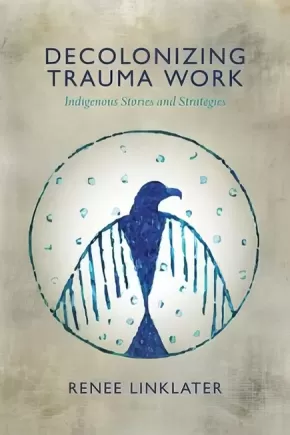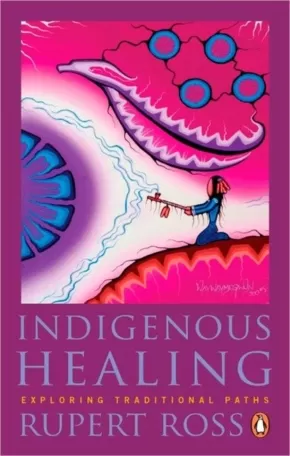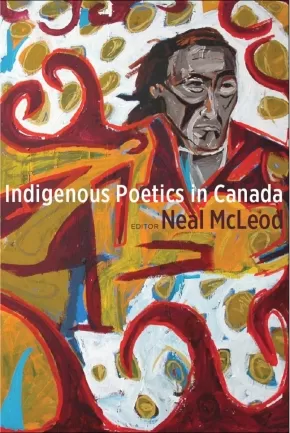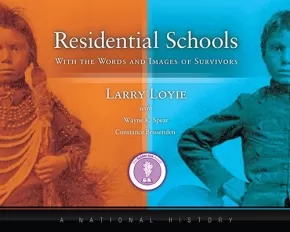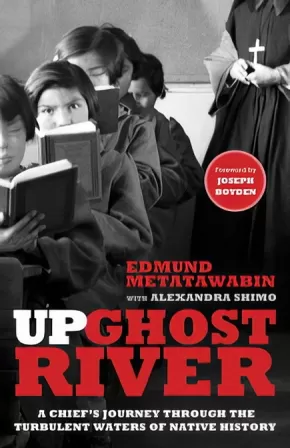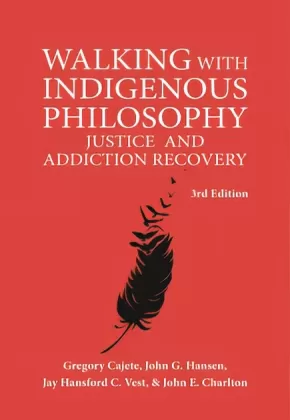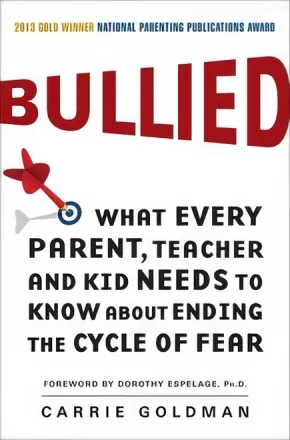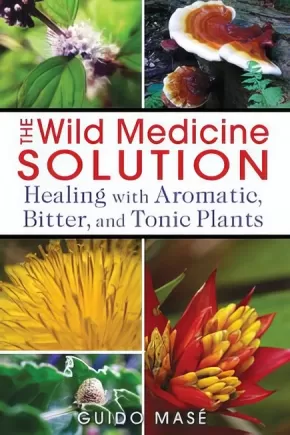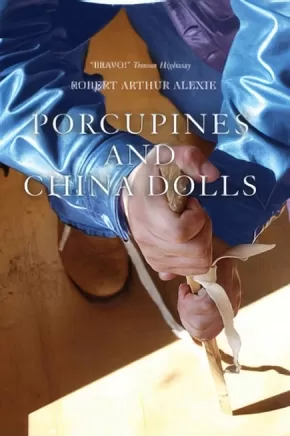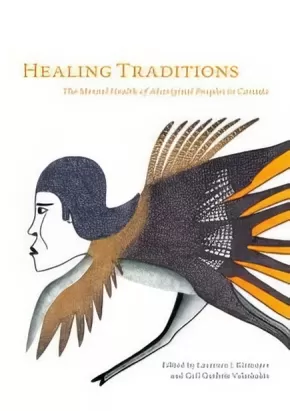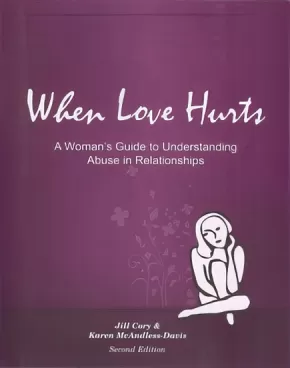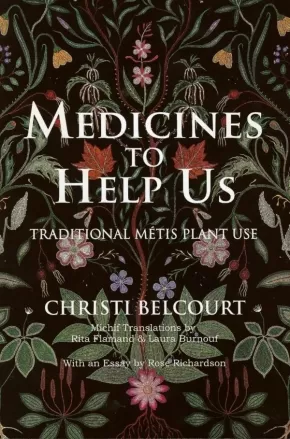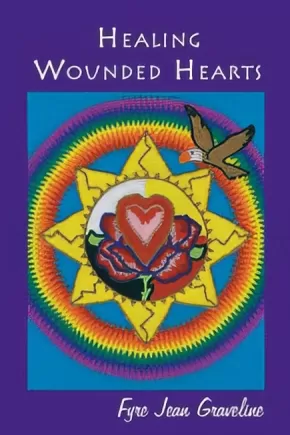
Healing
106
-
120
of
131 Results;
Sort By
Go To
of 9
Decolonizing Trauma Work: Indigenous Stories and Strategies
$27.00
Format:
Paperback
Text Content Territories:
Indigenous Canadian;
Reading Level: N/A
ISBN / Barcode: 9781552666586
Synopsis:
Synopsis:
In Decolonizing Trauma Work, Renee Linklater explores healing and wellness in Indigenous communities on Turtle Island. Drawing on a decolonizing approach, which puts the “soul wound” of colonialism at the centre, Linklater engages ten Indigenous health care practitioners in a dialogue regarding Indigenous notions of wellness and wholistic health, critiques of psychiatry and psychiatric diagnoses, and Indigenous approaches to helping people through trauma, depression and experiences of parallel and multiple realities. Through stories and strategies that are grounded in Indigenous worldviews and embedded with cultural knowledge, Linklater offers purposeful and practical methods to help individuals and communities that have experienced trauma. Decolonizing Trauma Work, one of the first books of its kind, is a resource for education and training programs, health care practitioners, healing centres, clinical services and policy initiatives.
Additional Information
176 pages | 6.00" x 9.00" | Paperback
Indigenous Healing: Exploring Traditional Paths
$24.00
Format:
Paperback
Text Content Territories:
Indigenous Canadian;
Reading Level: N/A
ISBN / Barcode: 9780143191100
Synopsis:
Synopsis:
Imagine a world in which people see themselves as embedded in the natural order, with ethical responsibilities not only toward each other, but also toward rocks, trees, water and all nature. Imagine seeing yourself not as a master of Creation, but as the most humble, dependent and vulnerable part.
Rupert Ross explores this indigenous world view and the determination of indigenous thinkers to restore it to full prominence today. He comes to understand that an appreciation of this perspective is vital to understanding the destructive forces of colonization. As a former Crown Attorney in northern Ontario, Ross witnessed many of these forces. He examines them here with a special focus on residential schools and their power to destabilize entire communities long after the last school has closed. With help from many indigenous authors, he explores their emerging conviction that healing is now better described as “decolonization therapy.” And the key to healing, they assert, is a return to the traditional indigenous world view.
The author of two previous bestsellers on indigenous themes, Dancing with a Ghost and Returning to the Teachings, Ross shares his continuing personal journey into traditional understanding with all of the confusion, delight and exhilaration of learning to see the world in a different way.
Ross sees the beginning of a vibrant future for indigenous people across Canada as they begin to restore their own definition of a “healthy person” and bring that indigenous wellness into being once again. Indigenous Healing is a hopeful book, not only for indigenous people, but for all others open to accepting some of their ancient lessons about who we might choose to be.
Additional Information
344 pages | 5.25" x 8.20" | Paperback
Indigenous Poetics in Canada
$38.99
Editors:
Format:
Paperback
Text Content Territories:
Indigenous Canadian;
Grade Levels: University/College;
ISBN / Barcode: 9781554589821
Synopsis:
Synopsis:
Indigenous Poetics in Canada broadens the way in which Indigenous poetry is examined, studied, and discussed in Canada. Breaking from the parameters of traditional English literature studies, this volume embraces a wider sense of poetics, including Indigenous oralities, languages, and understandings of place.
Featuring work by academics and poets, the book examines four elements of Indigenous poetics. First, it explores the poetics of memory: collective memory, the persistence of Indigenous poetic consciousness, and the relationships that enable the Indigenous storytelling process. The book then explores the poetics of performance: Indigenous poetics exist both in written form and in relation to an audience. Third, in an examination of the poetics of place and space, the book considers contemporary Indigenous poetry and classical Indigenous narratives. Finally, in a section on the poetics of medicine, contributors articulate the healing and restorative power of Indigenous poetry and narratives.
Awards
- 2014 ACQL Gabrielle Roy Prize for Literary Criticism winner.
Reviews
"Indigenous Poetics in Canada is that rare book of scholarship that speaks to the heart and spirit as well as the mind. The selections in this collection offer powerful individual and collective insight into the ways that diverse traditions of Indigenous poetics animate our imaginative possibilities and extend our cultural understandings across time, space, and difference. To study Indigenous poetics is to be forcefully reminded of both our historical traditions and their continuing significance, and the poets, writers, scholars, and story-makers featured in this volume are among the most eloquent and insightful voices on the topic today. This is a transformative intervention in Indigenous literary studies as well as the broader canon of Canadian literature, reminding us that questions of aesthetics are always in dynamic relationship with the lived experience of our politicized imaginations in the world."— Daniel Heath Justice (Cherokee Nation), April 2014
"Conversations about Indigenous literatures will be forever enriched by this stunning new collection. Here, the leading voices in Indigenous literary studies draw upon deep currents of inspiration—both ancient and contemporary—as they reflect upon and powerfully perform the act of re-making the world through language. Joyful, humbling, and wonderfully diverse, Indigenous Poetics in Canada welcomes readers and writers into a re-indigenized rhetorical landscape-and I cannot wait to see what takes place there.'"— Keavy Martin, April 2014
"In a fine introduction, McLeod does an admirable job of framing the essays and interviews to come while giving readers less familiar with indigenous poetics insight into some of the tropes and rhetorical strategies practitioners use, including kiskino (‘things...pointed to, but never completely articulated’), kakêskihkêmowina
(‘counselling narratives’), and aniskwâcimopicikêwin (‘the process of connecting stories together’). That this collection exists is at once a challenge to the white publishing world that has long refused to recognize indigenous poetic practices as ‘poetry’ and a testament to the health and vibrancy of the living word of indigenous consciousness.... Summing up: Highly recommended."— B. Carson, Choice, December 2014, December 2014
Educator Information
This book would be useful for the following subject areas or courses: Indigenous Studies, Poetry, Canadian Literature, and Literary Criticism.
Additional Information
416 pages | 6.00" x 9.00"
Edited by Neal McLeod.
Residential Schools, With the Words and Images of Survivors
$34.95
Format:
Hardcover
Text Content Territories:
Indigenous Canadian;
ISBN / Barcode: 9780993937101
Synopsis:
Synopsis:
Residential Schools, With the Words and Images of Survivors, A National History honours the survivors, the former students, who attended residential schools. Designed for the general reader this accessible, 112-page history offers a first-person perspective of the residential school system in Canada, as it shares the memories of more than 70 survivors from across Canada as well as 125 archival and contemporary images (65 black & white photographs, 51 colour, some never before published).
This essential volume written by award-winning author Larry Loyie (Cree), a survivor of St. Bernard Mission residential school in Grouard, AB, and co-authored by Constance Brissenden and Wayne K. Spear (Mohawk), reflects the ongoing commitment of this team to express the truths about residential school experiences and to honour the survivors whose voices are shared in this book.
Along with the voices, readers will be engaged by the evocative, archival photographs provided by the Shingwauk Residential Schools Centre with the assistance of curator Krista McCracken. The book begins with the moving introduction by Larry Loyie, and moves to seven chapters that explore the purpose of this school system; cultures and traditions; leaving home; life at school the half-day system; the dark side of the schools; friendship and laughter coping with a new life; changing world–the healing begins; and an afterword. A detailed, full colour map showing residential schools, timeline with key dates, glossary, and a helpful index (including names of survivors and schools) make this vital resource a must-have for secondary, college, and universities, libraries, and the general reader.
Reviews
"A broad and comprehensive review of the history of First Nations, Métis, and Inuit peoples in Canada told from the perspective of First Peoples in a very accessible way. Any educator, regardless of personal background or heritage, would find this timely resource very useful in any classroom." — Gary Fenn and Domenic Bellissimo, executive assistants, Ontario Secondary School Teachers’ Federation
"Written with a gentle hand, this book describes a history that few Canadians understand or even know about. From the first page, those in search of the truth are engaged in a journey of learning, as they come to understand the true battle of Aboriginal peoples to preserve their cultures and pride. This story is a true account of resiliency and human spirit." — Tracy Zweifel, executive director, Sagitawa Friendship Society, Alberta
Awards
- 2016 Winner of Golden Oak award in Ontario's Forest of Reading program
Educator Information
This must-have resource includes a detailed, full-colour map showing residential schools, a timeline with key dates, and a glossary.
Recommended for grades 7-12, but would still be useful for adults and college/university courses studying residential schools and Indigenous history.
This book has been evaluated and approved by ERAC (Educational Resource Acquisition Consortium, British Columbia).
Additional Information
112 pages | 10.43" x 8.26"
Up Ghost River: A Chief's Journey Through the Turbulent Waters of Native History
$22.00
Format:
Paperback
Text Content Territories:
Indigenous Canadian; First Nations; Cree (Nehiyawak);
ISBN / Barcode: 9780307399885
Synopsis:
Synopsis:
A powerful, raw yet eloquent memoir from a residential school survivor and former First Nations Chief, Up Ghost River is a necessary step toward our collective healing.
In the 1950s, 7-year-old Edmund Metatawabin was separated from his family and placed in one of Canada’s worst residential schools. St. Anne’s, in northern Ontario, is an institution now notorious for the range of punishments that staff and teachers inflicted on students. Even as Metatawabin built the trappings of a successful life—wife, kids, career—he was tormented by horrific memories. Fuelled by alcohol, the trauma from his past caught up with him, and his family and work lives imploded.
In seeking healing, Metatawabin travelled to southern Alberta. There he learned from elders, participated in native cultural training workshops that emphasize the holistic approach to personhood at the heart of Cree culture, and finally faced his alcoholism and PTSD. Metatawabin has since worked tirelessly to expose the wrongdoings of St. Anne’s, culminating in a recent court case demanding that the school records be released to the Truth and Reconciliation Commission.
Now Metatawabin’s mission is to help the next generation of residential school survivors. His story is part of the indigenous resurgence that is happening across Canada and worldwide: after years of oppression, he and others are healing themselves by rediscovering their culture and sharing their knowledge.
Coming full circle, Metatawabin’s haunting and brave narrative offers profound lessons on the importance of bearing witness, and the ability to become whole once again.
Walking with Indigenous Philosophy - 3rd Edition (2 in Stock, Out of Print)
$49.50
Format:
Paperback
Text Content Territories:
Indigenous American; Indigenous Canadian; Indigenous;
Reading Level: N/A
ISBN / Barcode: 9781926476247
Synopsis:
Synopsis:
Dr. Gregory Cajete, Dr. John G. Hansen, Dr. Jay Hansford C. Vest, and Dr. John E. Charlton have expanded the breadth, depth and scope of Walking With Indigenous Philosophy: Justice and Addiction Recovery (3rd ed.) making it a multidisciplinary, international and cross-cultural examination of a restorative justice based approach, that at its heart draws upon the wisdom inherent within Indigenous cultures, in order to question hierarchical and heavily one-sided disease based understanding to addiction recovery.
This third edition continues to advocate a model of restorative justice, saturated throughout by an Indigenous philosophy of holism and healing through inclusion and education, when working with those upon the margins, in order to appreciate and honour the whole person.
Justice is understood as a concept that must be based upon, and within, the recognition of the other. It is from within this recognition of the other that accountability, as a healing endeavour, must find its grounding. The voices of Cree elders indigenous to northern Manitoba, Indigenous Justice Workers, two American Indians (Cajete and Vest), one First Nation (Hansen), one addiction counselling professional (Charlton) and both Indigenous and non-Indigenous people in recovery are heard.
Reviews
"Walking With Indigenous Philosophy: Justice and Addiction Recovery (3rd ed) is an accurate and introspective look at Indigenous peoples and addictions. This exemplary work recognizes storytelling, restorying, and the inherent value within healing through spiritual and cultural praxis that privileges Indigenous ways of knowing. The book challenges the existing paradigm and takes you through an alternative method of being. Great for a textbook and reference for Addictions workers." - Verna Billy Minnabarriet
"For those who teach Native Cultures or want to be better informed, this book is a valuable resource. Its Indigenous perspectives on addiction recovery would be hard to find elsewhere." - Wanda Teays, PhD
Additional Information
238 pages | 6.00" x 9.00" | 3rd Edition | Paperback
Bullied: What Every Parent, Teacher, and Kid Needs to Know About Ending the Cycle of Fear
$21.99
Format:
Paperback
ISBN / Barcode: 9780062105080
Synopsis:
Synopsis:
Winner of National Parenting Publications Award and Mom's Choice Award!
Everybody knows how it feels to be ostracized, isolated or taunted, but most of us are at a loss when it comes to knowing how to make it better. In Carrie Goldman's groundbreaking book, Bullied, she offers concrete solutions for parents, teachers, and kids on how to effectively respond to painful situations—whether it is normal social conflict or more serious bullying.
Goldman's warm, engaging style combines the real-life stories of bullies, victims, bystanders, and their parents with the most cutting edge scientific research to provide a thorough analysis of cruelty in our culture. She explores how the pop culture permeates homes and schools, often impacting the way kids view those who are different from the accepted norm.
Bullied comprehensively addresses issues such as:
- The media's influence on aggression and bullying
- How to prevent cyberbullying, or how to manage cyberbullying once it has begun
- How to safely shift from being a bystander into a witness or an ally
- Effects of bullying on the brain, both for bullies and for victims
- Steps to take with the school if you are being bullied or sexually harassed
- A comprehensive look at restorative justice as a non-punitive response to bullying
- Techniques to help you deal with verbal taunting in the moment it is happening
- Identifying the difference between normal social drama and bullying
- Knowing when to ask for help and how to access effective help
The mother of a bullied first grader, Goldman's inspiring true story triggered an outpouring of support from online communities around the world. Bullied is a research-based book born from Goldman's blog post about the ridicule her daughter suffered for bringing a Star Wars thermos to school—a story that went viral on Facebook and Twitter before exploding everywhere, from CNN.com and Yahoo.com to sites all around the world. More than 200 people were interviewed for the book, including parents, teachers, kids, social workers, authors, celebrities, researchers, psychologists, actors, actresses, and school administrators. It is a wealth of knowledge packaged in a fascinating read.
Family (6 in Stock, Out of Print) - ON SALE!
$21.00 $27.99
Format:
Hardcover
ISBN / Barcode: 9781606841556
Synopsis:
Synopsis:
It is a day like any other when seventeen-year-old Melinda Jensen hits the road for San Francisco, leaving behind her fractured home life and a constant assault on her self-esteem. Henry is the handsome, charismatic man who comes upon her, collapsed on a park bench, and offers love, a bright new consciousness, and—best of all—a family. One that will embrace her and give her love. Because family is what Mel has never really had. And this new family, Henry’s family, shares everything. They share the chores, their bodies, and their beliefs. And if Mel truly wants to belong, she will share in everything they do. No matter what the family does, or how far they go.
Told in episodic verse, family is a fictionalized exploration of cult dynamics, loosely based on the Manson Family murders of 1969. It is an unflinching look at people who are born broken, and the lengths they’ll go to to make themselves “whole” again.
The Wild Medicine Solution (4 in Stock) - ON SALE!
$20.00 $27.50
Format:
Paperback
ISBN / Barcode: 9781620550847
Synopsis:
Synopsis:
Restoring the use of wild plants in daily life for vibrant physical, mental, and spiritual health
• Explains how 3 classes of wild plants--aromatics, bitters, and tonics--are uniquely adapted to work with our physiology because we coevolved with them
• Provides simple recipes to easily integrate these plants into meals as well as formulas for teas, spirits, and tinctures
• Offers practical examples of plants in each of the 3 classes, from aromatic peppermint to bitter dandelion to tonic chocolate
As people moved into cities and suburbs and embraced modern medicine and industrialized food, they lost their connection to nature, in particular to the plants with which humanity coevolved. These plants are essential components of our physiologies--tangible reminders of cross-kingdom signaling--and key not only to vibrant physical health and prevention of illness but also to soothing and awakening the troubled spirit.
Blending traditional herbal medicine with history, mythology, clinical practice, and recent findings in physiology and biochemistry, herbalist Guido Masé explores the three classes of plants necessary for the healthy functioning of our bodies and minds--aromatics, bitters, and tonics. He explains how bitter plants ignite digestion, balance blood sugar, buffer toxicity, and improve metabolism; how tonic plants normalize the functions of our cells and nourish the immune system; and how aromatic plants relax tense organs, nerves, and muscles and stimulate sluggish systems, whether physical, mental, emotional, or spiritual. He reveals how wild plants regulate our heart variability rate and adjust the way DNA is read by our cells, controlling the self-destructive tendencies that lead to chronic inflammation or cancer.
Offering examples of ancient and modern uses of wild plants in each of the 3 classes--from aromatic peppermint to bitter dandelion to tonic chocolate--Masé provides easy recipes to integrate them into meals as seasonings and as central ingredients in soups, stocks, salads, and grain dishes as well as including formulas for teas, spirits, and tinctures. Providing a framework for safe and effective use as well as new insights to enrich the practice of advanced herbalists, he shows how healing “wild plant deficiency syndrome”--that is, adding wild plants back into our diets--is vital not only to our health but also to our spiritual development.
Porcupines and China Dolls (1 in stock, in reprint)
$24.95
Format:
Hardcover
Text Content Territories:
Indigenous Canadian; First Nations; Dene; Dinjii Zhuh (Gwich'in);
ISBN / Barcode: 9781894778688
Synopsis:
Synopsis:
James Nathan and Jake Noland have been best friends for their entire lives. Like most residents in their small northern Gwich’in community, they like to get drunk, get high and sleep around. It helps them forget the past—a horrific past full of painful memories. At times just one bullet to the temple away from a self-inflicted death, James and Jake fumble through life, tormented and haunted by the demons of their residential school abuse.
The decision by one man to publicly disclose his abuse causes upheaval within the community and forces other victims to consider their options: either share their secret and begin healing, or maintain their silence and suffer alone. Raw and gripping, Porcupines and China Dolls is impossible to put down.
Educator Information
Resource for English First Peoples 11-12.
Additional Information
312 pages | 6.00" x 9.00"
Taking Back Our Spirits: Indigenous Literature, Public Policy, and Healing
$27.95
Format:
Paperback
Text Content Territories:
Indigenous Canadian;
ISBN / Barcode: 9780887557101
Synopsis:
Synopsis:
From the earliest settler policies to deal with the “Indian problem,” to contemporary government-run programs ostensibly designed to help Indigenous people, public policy has played a major role in creating the historical trauma that so greatly impacts the lives of Canada’s Aboriginal peoples. Taking Back Our Spirits traces the link between Canadian public policies, the injuries they have inflicted on Indigenous people, and Indigenous literature’s ability to heal individuals and communities. Episkenew examines contemporary autobiography, fiction, and drama to reveal how these texts respond to and critique public policy, and how literature functions as “medicine” to help cure the colonial contagion.
Healing Traditions: The Mental Health of Aboriginal Peoples in Canada (1 in Stock)
$55.95
Format:
Paperback
Text Content Territories:
Indigenous Canadian;
Grade Levels: University/College;
ISBN / Barcode: 9780774815246
Synopsis:
Synopsis:
Aboriginal peoples in Canada have diverse cultures but share common social and political challenges that have contributed to their experiences of health and illness. This collection addresses the origins of mental health and social problems and the emergence of culturally responsive approaches to services and health promotion. Healing Traditions is not a handbook of practice but a resource for thinking critically about current issues in the mental health of indigenous peoples.
The book is divided into four sections: an overview of the mental health of indigenous peoples; origins and representations of social suffering; transformations of identity and community; and traditional healing and mental health services. Cross-cutting themes include: the impact of colonialism, sedentarization, and forced assimilation; the importance of land for indigenous identity and an ecocentric self; notions of space and place as part of the cultural matrix of identity and experience; and processes of healing and spirituality as sources of resilience.
Offering a unique combination of mental health and socio-cultural perspectives, Healing Traditions will be useful to all concerned with the well being of Aboriginal peoples including health professionals, community workers, planners and administrators, social scientists, educators, and students.
Also available in hardcover.
When Love Hurts: A Woman's Guide to Understanding Abuse in Relationships (2 in Stock) - ON SALE
$16.50 $24.00
Format:
Paperback
ISBN / Barcode: 9780425274286
Synopsis:
Synopsis:
Love is meant to be supportive. But what happens when you are hurt by the one you love? This book will help women interpret their relationship in valuable new ways. Drawing on their own wisdom and the wisdom of many women who share their experience, When Love Hurts helps women find the answers they’re looking for. When Love Hurts explores many difficult questions...
Medicines to Help Us: Traditional Métis Plant Use
$25.00
Artists:
Text Content Territories:
Indigenous Canadian; Métis;
ISBN / Barcode: 9780920915790B
Synopsis:
Synopsis:
Based on Métis artist Christi Belcourt’s painting “Medicines to Help Us,” this innovative and vibrant resource honours the centuries-old healing traditions of Métis women. With contributions from Métis Elders Rose Richardson and Olive Whitford, as well as key Michif phrases and terminology, Medicines to Help Us is the most accessible resource relating to Métis healing traditions produced to date.
Educator Information
This resource guide does not include the study prints referred to on the back cover and within the book.
Michif Translators: Laura Burnoff and Rita Flamand
Elder Validation: Rose Richardson
Format: Book Only - English, with plant names in Michif, Nehiyawewin (Cree), and Anishinaabemowin (Ojibway)
Healing Wounded Hearts
$29.00
Format:
Paperback
Text Content Territories:
Indigenous Canadian; Métis;
ISBN / Barcode: 9781552661420
Synopsis:
Synopsis:
Healing Wounded Hearts brings together stories, poems and artwork that illustrate the struggles and strengths that Fyre Jean has, as a Métis Woman, living everyday in intersecting, parallel, sometimes colliding, socio-cultural realities. Baring her Heart and Soul, she shares personal, painful, spiritual discoveries of how life and worlds work, through Stories that have grown her into who she is. Through a blend of original research, reflective journals and creative use of dialogue, people, places, times, events, beings come alive. Simultaneously Traditional and Experimental, Factual and Fictional, her word choice and placement foreground questions of Authority, Power and Privilege. Fyre Jean is a wordsmith who bends and shapes languages, to make Truth, to Transform, to Move herself and her readers from one Place, Condition, Reality, to another. Healing Wounded Hearts is a process, a flow, a Journey. When you open this book, you open a Doorway to Healing. Be prepared to experience her worlds—personal and political, academic and artistic, humorous and tragic. You will be enlightened, inspired, moved, surprised into new ways of Seeing, Believing, Being. A must read for social activists, academics, artists, helpers and those on a Healing Journey.
Sort By
Go To
of 9

